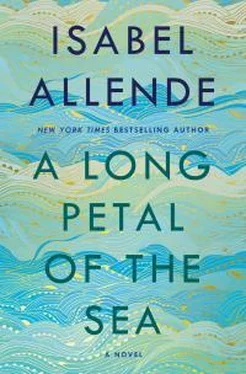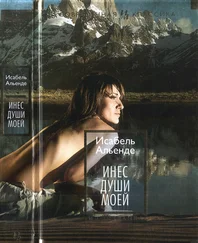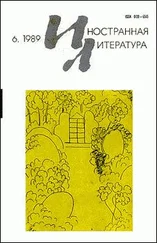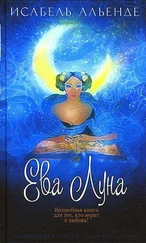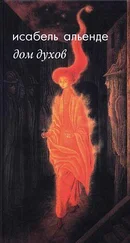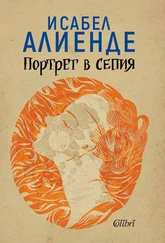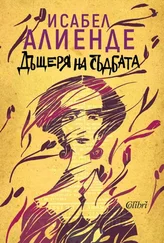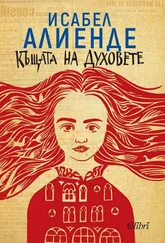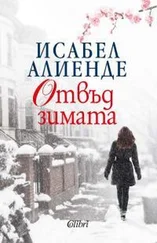“Of course I would.”
“I imagine that nothing I’ve said comes as a surprise to you, Matias: you must have heard the rumors. My bad reputation will follow me wherever I go. It could ruin your diplomatic career, and your life as well.”
“That’s my problem.”
—
BEHIND THE CAMELLIAS, Juana Nancucheo couldn’t see Ofelia take the small velvet box and examine it closely in the palm of her hand as if it were an Egyptian scarab; all she noticed was the silence. She didn’t dare poke her head through the bushes, but when she thought this had gone on long enough, she emerged from her hiding place and approached them to remove the tea tray. It was then she saw the ring on Ofelia’s fourth finger.
They wanted to be married without any fuss, but for Isidro del Solar that was tantamount to admitting guilt, besides which his daughter’s wedding was a wonderful opportunity to repay a thousand social obligations, and while they were at it give a slap in the face to the bastards spreading gossip about Ofelia. He himself hadn’t heard any, but on more than one occasion in the Club de la Union he thought he heard people laughing behind his back. Preparations for the wedding were minimal, since the bride and groom had everything ready from the year before, including sheets and tablecloths embroidered with their initials. They published the announcement in the society pages of El Mercurio, and the dressmaker quickly made a wedding gown similar to the previous one, but a few sizes larger.
Father Vicente Urbina did them the honor of marrying them. His presence itself was a vindication of Ofelia’s reputation. When readying the couple for the sacrament of marriage with the usual warnings and advice, he delicately avoided the question of the bride’s past. Ofelia, however, took great pleasure in telling him that Matias knew what had happened and so she wouldn’t have to carry the secret alone for the rest of her life. The two of them would bear it together.
Before leaving for Paraguay, Ofelia wanted to go to the country cemetery where her child was buried. Matias accompanied her. They straightened the white cross, laid a bunch of flowers on the grave, and said prayers. “One day, when we have our own plot in the Catholic cemetery, we’ll transfer your little boy to be with us, as it should be,” said Matias.
They had a week’s honeymoon in Buenos Aires, then traveled overland to Asuncion. Those few days were enough for Ofelia to sense that in marrying Matias she had made the best decision of her life. I’m going to love him as he deserves, I’ll be faithful to him and make him happy, she promised herself.
And so at last this man, as stubborn and determined as an ox, was able to cross the threshold of his lavish and meticulously prepared house, carrying his wife in his arms. She weighed more than he had bargained for, but he was strong.
CHAPTER 9
1948–1970
Every being
Will have the right
To land and life
And that will be the bread of tomorrow.
—PABLO NERUDA
“Ode to Bread”
ELEMENTAL ODES
THE SUMMER OF 1948 SAW the beginning of a Dalmau family tradition that was to last a decade. Roser and Marcel spent the month of February in a cabin they rented by the beach. Like most Chilean husbands of his standing, who boasted they never took holidays because they were indispensable at work, Victor stayed in the city and joined them on weekends. According to Roser, this was simply another expression of Chilean machismo: how could they give up the freedom that being summer bachelors offered them? It would have been frowned upon for Victor to take a whole month off from the hospital, but the main reason for him remaining was that the beach always brought back bitter memories of the Argeles-sur-Mer internment camp. He had promised himself never again to set foot on sand.
In February 1948 Victor finally had the chance to return the favor he owed Pablo Neruda for choosing him among those to emigrate to Chile. The poet was a senator, but had already fallen out with the president, who was at loggerheads with the Communist Party even though it had supported him in his rise to power. Neruda didn’t spare his insults about someone he saw as the product of political machinations . He regarded him as a traitor, a small, vile, and bloody vampire. Accused of slander and calumny by the government, Neruda was stripped of his post as senator and hunted by the police.
Two leaders of the Communist Party, which was soon to be outlawed, appeared at the hospital to talk to Victor.
“As you know, there’s an arrest warrant out for Comrade Neruda,” they told him.
“I read about it in the newspaper today. I can hardly believe it.”
“He has to be hidden while he’s outlawed. We think the situation will soon be resolved, but if it isn’t, he’ll have to be somehow smuggled out of the country.”
“How can I help?” asked Victor.
“You can put him up for a while. Not long. He has to change houses frequently, to avoid the police.”
“Of course. It’ll be an honor.”
“It goes without saying that nobody is to hear about this.”
“My wife and son are on vacation. I’m alone in my house. He’ll be safe there.”
“We must warn you that you could face a serious problem as an accessory.”
“That doesn’t matter,” Victor replied, and gave them his address.
—
THIS WAS HOW PABLO Neruda and his wife, the Argentine painter Delia del Carril, came to live clandestinely in the Dalmau family home for two weeks. Victor gave up his bed for them and took them food prepared by the cook at the Winnipeg, in small containers so as not to attract the neighbors’ attention. The poet couldn’t help but notice the coincidence of the restaurant’s name. He also had to be supplied with newspapers, books, and whisky, the only thing that calmed him down. He was desperate for conversation, as visits were restricted. He was an extrovert who lived life to the full; he needed not only his friends but his ideological adversaries with whom to practice his polemical verbal fencing. During the endless evenings in that reduced space, he went over the list of refugees he had granted a place on board in Bordeaux that distant August 1939 day, as well as other exiled Spanish men and women who arrived in Chile in the years that followed. Victor pointed out that Neruda’s refusing to stick to the government’s order to select only skilled workers, and instead including artists and intellectuals, had enriched the country with a wide range of talent, knowledge, and culture. In under a decade they had provided outstanding scientists, musicians, painters, writers, journalists, and even a historian whose dream was the monumental task of rewriting the history of Chile from its origins.
Being shut in was driving Neruda mad. He paced tirelessly up and down like a caged animal within the house’s four walls: he couldn’t even look out the window. His wife, who had given up everything, including her art, to be with him, had to struggle to keep him indoors. The poet grew a beard and filled the time by furiously writing his Canto General . To repay Victor’s hospitality, he read in his inimitably lugubrious voice earlier poems and some still unfinished. Listening to him infected Victor with an addiction to poetry that was to last throughout his life.
One night, without warning, two strangers arrived in dark coats and hats, even though the summer heat was still intense at that hour. They looked like detectives, but identified themselves as party comrades. Without explanation, they took the couple with them, barely giving them time to pack two suitcases with clothes and the unfinished poems. They refused to tell Victor where he could visit the poet, but warned him he might have to put Neruda up again, because it was hard to find refuges. There was a squad of more than five hundred policemen sniffing out the fugitive’s tracks. Victor explained that in a week’s time his family would be returning from the seaside, and his house would no longer be safe. In any event, it was a relief to recover peace and quiet. His guest had filled every nook and cranny with his huge presence.
Читать дальше
